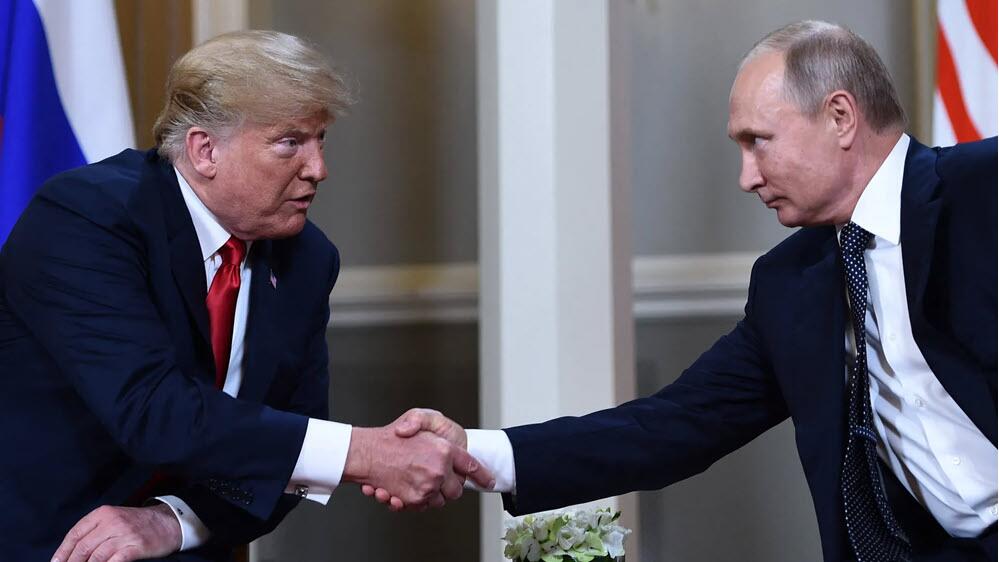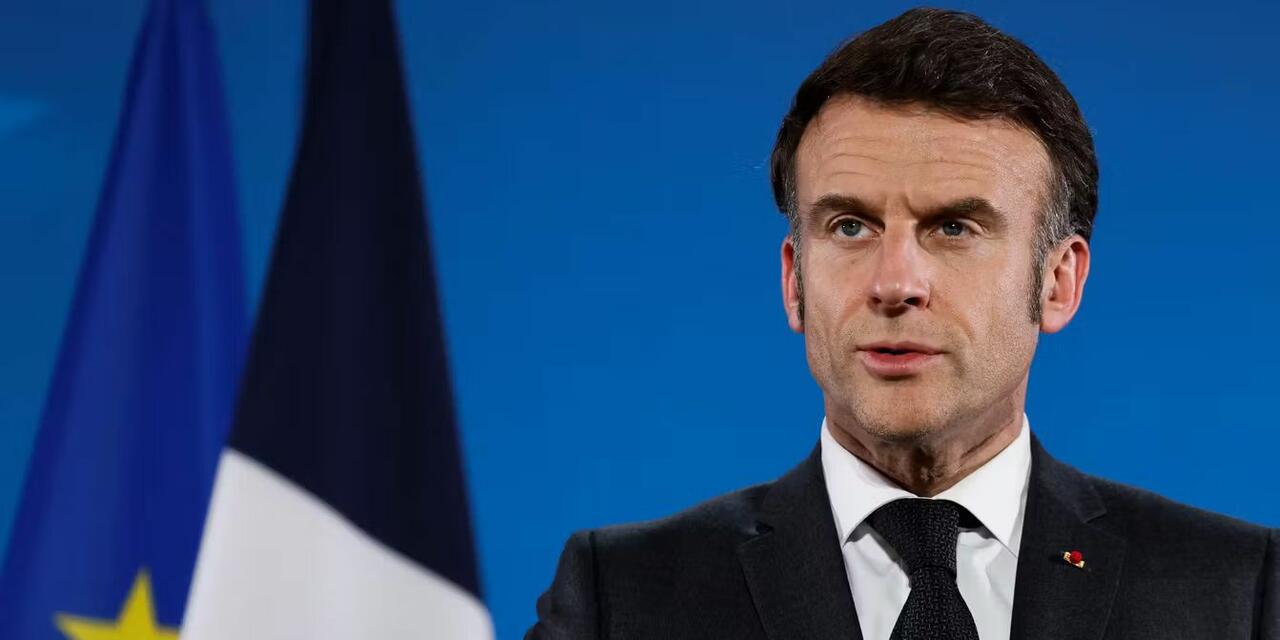"Donald Trump is at war with the deep state" is the one statement you won't find in the article bellow although all the signs are mentioned. From the neo-cons in the US to the WEF and other organisms who control Europe, the war is total and just like Ukraine cannot end in a stalemate. One party will have to lose the war.
Trump is ruthless and "without principles" according to Epstein himself who must certainly have known something about principles and what a "lack of" actually meant. Putin as a former KGB probably has a likewise understanding of what it takes to win. Including this basic rule of history: "What matters is not who is right but who is left."
The stakes in Alaska will consequently be extremely high. The war in Ukraine is almost over and the country, including and especially Europe has been defeated. So this is NOT what will be discussed in Alaska. Putin understands that he will have to give a token on this subject although Ukraine must give 95%. What is at stake is the rest. The US is over-indebted and lacks the industrial capacity of the last century but it still controls the world financial system. So conversely, this must be what is at stake and what Trumps wants to talk about. The menace of BRICS is now real and the little-thought tariffs except in their domestic impact and dimension are accelerating the decomposition of the system, which paradoxically is in the interest of nobody.
Trump wants to be perceived as strong, which he is financially and strategically, although his relative power is vanning fast and Putin will have to be extremely skillful in not hurting the man while confronting the country which is why the stakes are so high. The outcome can be peace but can also be an acceleration towards nuclear war. No wonder, Putin is spending his weekend talking to Xi Jinping, Lula and Modi. These are the BRICS powers he needs to confront the US.
Europe on the other end is facing ruin and bankruptcy. The failure of a woke political system with its mass immigration and DEI policies. The ruin of a foreign strategy based on the exploitation of the Black Continent, while of course professing the opposite. And the bankruptcy of an industrial and energy system cut from cheap resources from Russia. These are consequently desperate times in Europe which will generate desperate moves in the days ahead.
The main reason of the meeting is that both leaders understand that if they do nothing, the world will keep sliding inexorably towards war as we have been discussing on this blog for years. And still the odds are 50/50. Europe is bankrupt and finished. You cannot extricate a continent of civil servants and pensioners from their own madness and more importantly self interest. The US is also bankrupt but the country may still have the resources to find a way out of the current morass. Can Trump engineer a miracle? This cannot be done without the tacit support of China, India and Brazil. The meeting next week could be a first step towards such a large scale discussion, through Russia. But make no mistake, the world is at stake and we are on the verge of a complete paradigm shift in the coming years. The choice is to decide if it happens through a peaceful negotiated process or war.
Trump–Putin Alaska Summit: Peace Talks And Power Plays On Former Russian Soil
Donald Trump stays true to his line and asserts dominance over the geopolitical chessboard — symbolically as well. Following the announcement of a trade deal with the EU at his golf resort in Turnberry, Scotland, peace talks in the Ukraine conflict with Russian President Vladimir Putin are now scheduled in Alaska.
The venue of a negotiation often predefines the balance of power between opponents. In that sense, it must be read as a clear show of force that both European Commission President Ursula von der Leyen and UK Prime Minister Keir Starmer — notably without military fanfare — traveled to Trump’s private resort in Turnberry to be politically “placed” by the American president. Judging by the outcome of those talks, one conclusion is unavoidable: the European Union no longer plays in the league of the great powers. Washington’s interest in intra-European affairs has noticeably cooled, focusing essentially on two things: an orderly withdrawal from military entanglements, and the defense of US corporate interests in the EU single market.
We are witnessing a shift of power from the Atlantic to the Pacific.
Europe Losing Grip
It’s hardly a secret: China and the United States will be setting the standards of international politics in the future. Russia, the world’s most resource-rich country, may be labeled by Europeans as a pariah state and a malicious hub of all evil — but that does not change the fact that the age of postcolonial European dominance is ending, and Moscow will have no trouble playing its resource-market cards outside the shrinking European sphere of influence.
In this spirit, Russian President Vladimir Putin will travel on August 15 to “away territory” in Alaska — once part of Russia — to preliminarily negotiate peace terms in Ukraine with President Trump. Trump sees progress in the stalemated conflict and stresses that the talks will likely lead to a land-swap arrangement “to the benefit of both sides.” While the Russian government has not issued an official statement, much suggests Moscow will not return the occupied territories in Donbas, Luhansk, Zaporizhzhia, and Kherson, nor Crimea. Russia currently holds the military initiative and is increasing pressure on Ukraine and its allies to force a resolution.
To avoid overshadowing the personal meeting, the White House postponed a tariff ultimatum — originally set for August 9 — that would have imposed 100% duties on Russian goods if the war continued, pushing it back to August 27.
Alaska as a Signal
We will have to see what unfolds in the meantime and whether potential disruptions derail this cautious rapprochement once more. One recalls the much-discussed visit of former UK Prime Minister Boris Johnson, who, two months after the outbreak of war, acted as a kind of shadow diplomat to reject a Russian-proposed peace deal.
What is now on the table again — a land swap and Ukraine’s exclusion from NATO — was flatly rejected back then. Hundreds of thousands of dead and wounded later, there appears to be a renewed turn toward diplomacy in light of the bleak military situation. This time, however, it is the Americans applying pressure on the warring sides. From Europe, little is heard apart from intense rearmament efforts and a declared will to “re-militarize” the population, as the German government has repeatedly emphasized.
Diplomatic Thread to Be Picked Up
The diplomatic thread is now to be picked up again in Alaska. Until 1867, Alaska was Russian territory before the US purchased it from Tsar Alexander II for $7.2 million — after Russia’s defeat in the Crimean War left its treasury depleted. The geography here speaks volumes: Alaska lies between Russia and the US, separated only by the Bering Strait, symbolizing the direct neighborhood of two great powers that may now be entering a new phase of rapprochement in a rapidly changing world order.
For the Ukraine talks, the location signals that even deeply rooted geopolitical divides can be bridged through pragmatic agreements. At the same time, Alaska has strategic importance for the Arctic, whose trade routes and resources will likely be integrated into the future architecture of global power.
By hosting the Russian president at such a neuralgic spot, Trump fuses historical reconciliation with present-day power politics, creating a symbolic setting that suggests readiness for compromise without conceding sovereignty.
Trump’s Move
What might look like a PR coup in the headlines is in reality a move at the highest level of geopolitics. By inviting Putin onto US soil, Trump openly breaks with the prevailing doctrine of keeping Russia isolated. The ICC arrest warrant, the sanctions regime, years of carefully cultivated enemy imagery — all of it, should the meeting take place, would evaporate in significance with a single photograph.
The message: The rules the foreign-policy establishment holds as untouchable are negotiable — not carved in stone — at least if the President of the United States decides so.
Behind closed doors, the focus will likely be on redrawing spheres of influence: a possible Ukraine endgame in exchange for Russian concessions — energy, Arctic passage, perhaps even a gradual distancing from Beijing. For Trump, the meeting offers a chance to pull Russia, perhaps through trade, into America’s geostrategic orbit. This would align with the raw-materials deal signed with Ukraine in April, granting the US exclusive access to the country’s rare earths as well as certain oil and gas reserves.
But the true test linked to this meeting lies within the inner workings of America’s power machine: Can Trump carry out such an unconventional operation without sabotage from his own security apparatus? Should he manage to launch a robust peace process, he will have proven that he has taken full control of US foreign policy strategy.
That would be a decisive blow against the neocons pushing for escalation in Ukraine — and a further step toward peace.
* * *
About the author: Thomas Kolbe is a German graduate economist who has worked as a journalist and media producer for clients from various industries and business associations. As a publicist, he focuses on economic processes and observes geopolitical events from the perspective of the capital markets. His publications follow a philosophy that focuses on the individual and their right to self-determination.



No comments:
Post a Comment